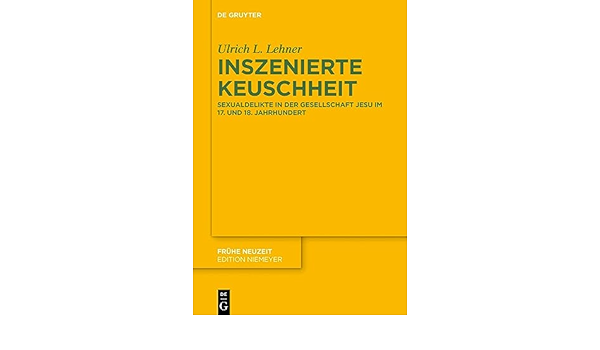Zurich/Notre Dame (KNA) According to the German historian and theologian Ulrich L. Lehner, all the problems of the Catholic Church in the abuse crisis were already known in the 17th and 18th centuries. “The Jesuits liked to present themselves as a particularly chaste order,” said the author of the book from the renowned University of Notre Dame in the USA in an interview with the Swiss KNA partner portal kath.ch. “This staging worked because cases of sexual violence against students and members of the order were kept secret.”
Offenders were simply deported to the world clergy, although this was against the order’s statutes, according to Lehner. Prominent offenders, on the other hand, were left in the order and covered up. The mechanisms were similar to those in the current abuse crisis. The historian: “Even back then, there were rumours that people didn’t want to believe. People were simply transferred.” His new book “Inszenierte Keuschheit” (Staged Chastity) also aims to inspire a rethink of the polemic against Jesuit schools as a place of “pederasty”, which historians have never taken seriously, said Lehner.
The scientist and devout Catholic Lehner rejects the thesis that abuse in the church is a modern problem for which the 1968s are to blame as demonstrably false. Pius XII (1939-1958) was crowned Pope by a man whom the Roman police considered to be a pederast. His predecessor Pius XI (1922-1939) was surrounded in almost all official photographs by two high-ranking clerics, about whom one could read similar things in police files. Perhaps the extent of abuse was lower before 1968, says Lehner; he does not presume to make any statistical statements about this. “But that there were such cases – and far more than assumed – is a fact.”
The historian gives Pope Francis a poor report card when it comes to dealing with the abuse problem. “Pope Francis is not doing anything better,” said Lehner. He referred to the recent rehabilitation of US Bishop John Nienstedt, Archbishop of Saint Paul and Minneapolis until 2015. “Ten years after his resignation, the faithful are now being asked to trust the supreme Vatican court, without a line of reasoning or any evidence, that there was nothing to the accusations against Nienstedt,” criticised the historian.
“Trust is like a bridge that you use to cross a river,” said Lehnert. You only cross it “if you have good reason to believe that the planks are not rotten”. As people have repeatedly fallen into the deep end in recent years, Catholics today need good reasons to venture onto this bridge.
“But authoritarian as he is, Francis doesn’t understand this,” criticises the US professor. How can you trust someone “for whom transparency in matters of abuse is a foreign concept”; or “who promotes people to the highest offices who have demonstrably protected abusers”, such as the head of the authority for the faith, Cardinal Victor Manuel Fernandez. “That’s no way to win back trust,” Lehner judges.



